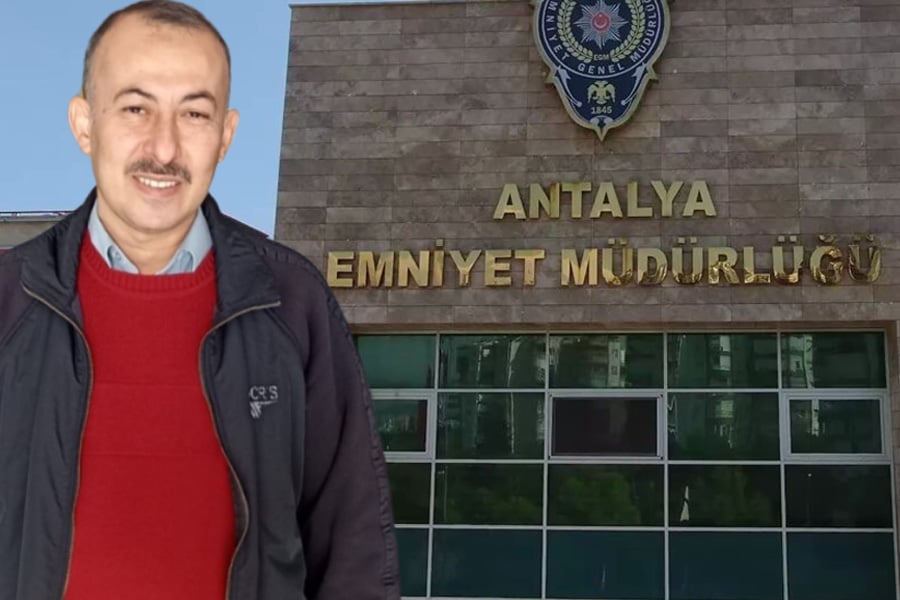Three police officers and a doctor accused of involvement in the torture of a former teacher in police custody are now standing trial in southern Turkey, the first such trial concerning alleged acts of torture following a coup attempt in July 2016, the Kronos news website reported.
At the center of the trial is the torture allegedly suffered by Eyüp Birinci, a former teacher who was detained for alleged links to the faith-based Gülen movement in a wave of mass detentions targeting alleged or perceived Gülen followers following the coup attempt.
Birinci claims to have being sexually assaulted, beaten and insulted in police custody at the Antalya Police Station, where he was held shortly after the coup attempt on July 15, 2016.
President Recep Tayyip Erdoğan and his government hold the Gülen movement responsible for the coup attempt, which was suppressed overnight and claimed some 250 lives. The movement, inspired by the views of Islamic scholar Fethullah Gülen, who died in October, strongly denies the allegations.
Police officers Muhsin Türkel, İbrahim Halil Kuşak, Süleyman Kundakçı and doctor Fevzi Yılmaz are accused of torture or torture through negligent behavior in an indictment drafted by Antalya prosecutors.
The first hearing in the trial was held at the Antalya High Criminal Court on Friday. The court adjourned the trial until April 18.
According to the indictment, Birinci fainted from the torture and was taken to a hospital where it was determined that he was experiencing internal bleeding. Birinci’s colon was ruptured from torture inflicted with a police baton.
Birinci was arrested in July 2016 and was sentenced to almost nine years in prison on terrorism charges due to his alleged Gülen links. He was released from prison in April 2022 after serving his sentence.
Birinci was also among around 130,000 public servants who were removed from public service due to their alleged links to terror groups. He was fired from his job as a geography teacher at a high school in Antalya by a government decree in September 2016.
According to Asuman Birinci, her husband underwent an operation for the ruptured colon and she was not allowed to see him during the time he was in the hospital.
Binici was not issued a report documenting the torture, but rather doctors said his injuries were the result of him falling down some stairs.
The doctor in the indictment, Fevzi Yılmaz, is accused of not having documented the torture.
In a landmark decision in May 2021, Turkey’s Constitutional Court ruled that Birinci was tortured in detention and that his rights were violated. The court ruled that Birinci be paid 40,000 Turkish lira in compensation for the acts of torture he suffered in police custody.
Allegations of torture and mistreatment have become worryingly common in Turkey following the coup attempt, when thousands of people were detained and arrested on bogus terrorism or coup charges.
According to a report by the UN special rapporteur on torture and other cruel, inhuman or degrading treatment or punishment, on his mission to Turkey from November 27 to December 2, 2016, “torture and other forms of ill-treatment were widespread” in Turkey. “[T]here seemed to be a serious disconnect between declared government policy and its implementation in practice,” the special rapporteur noted.
The report found there were numerous consistent allegations received by the special rapporteur in the immediate aftermath of the failed coup in 2016 and that torture and other forms of ill-treatment were widespread.
The special rapporteur heard persistent reports of severe beatings, punches and kicking, blows with objects, falaqa, threats and verbal abuse, being forced to strip naked, rape with objects and other sexual violence or threats thereof, sleep deprivation, stress positions and extended blindfolding and/or handcuffing for several days, according to the report.
